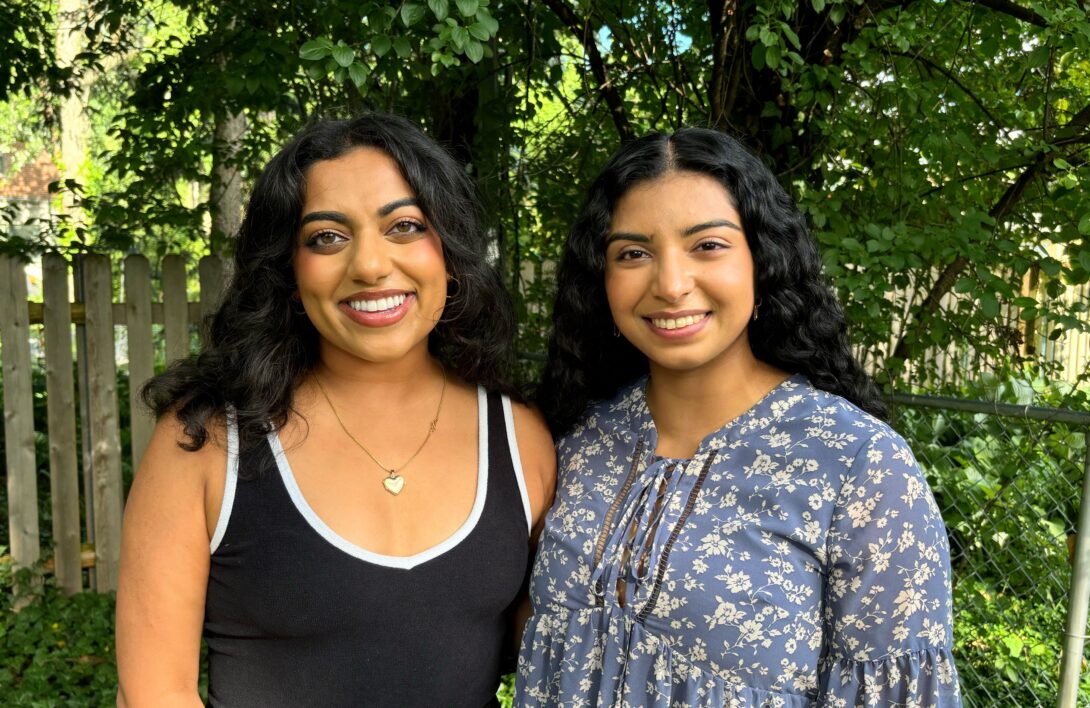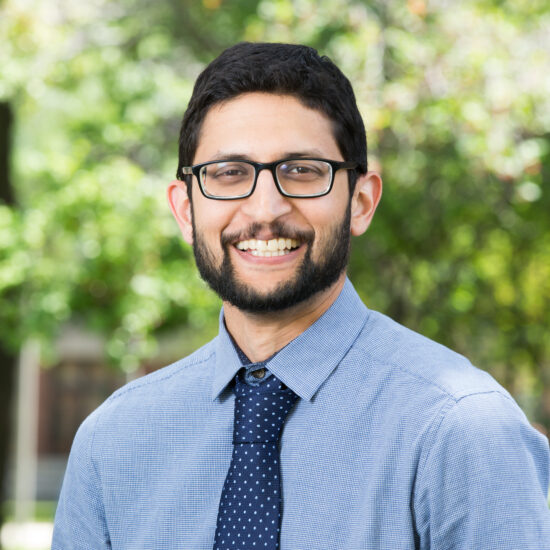The combined residency of Internal Medicine-Pediatrics at the University of Illinois College of Medicine – Chicago is one of the longest running MedPeds programs in the United States – training physicians who are specialists in the care of both adults and children.
Pride POints Heading link
-
40 # Years we have been training MedPeds Physcians
-
20 + MedPeds Faculty
-
11 + Categorical Chief Residents since 2010
Overview Heading link
The program enjoys the strong support of its outstanding categorical programs along with the numerous resources that our health sciences system avails, which includes:
- Colleges of Medicine, Pharmacy, Nursing, Applied Health Sciences, Social Work, and Dentistry
- Department of Medical Education and the Simulation and Integrative Learning Institute
- School of Public Health
- Center for Clinical and Translational Research
- The undergraduate facilities along with the other professional, masters, and doctorate programs
Patient community
Additionally, our residents provide care for a diverse and under-resourced patient community under the guidance of invested faculty, who emphasize medical decision-making based on the best available evidence, the need to address barriers to care, and inclusive of patient/family input.
Research and scholarly pursuits
Scholarly work is encouraged with opportunities for housestaff to get involved with basic science and clinical research, quality improvement, informatics, and medical education. We also seek to support and provide mentorship for residents who desire to pursue their own innovations, global health, policy initiatives, and community health and advocacy projects.
Message From the Director Heading link
For over 30 years we have been training outstanding individuals, who seek to provide comprehensive care for patients of all ages. Our residents have the opportunity to care for medically vulnerable patients living in predominantly under-resourced settings, who frequently face medical, social, mental health, and economic challenges in both the outpatient and inpatient settings at the University of Illinois Hospital, Children’s Hospital University of Illinois, and the Jesse Brown VA Medical Center. The depth of training and range of experience has allowed our residents to pursue a variety of careers paths, including primary care, fellowship training, hospitalist medicine, academic medicine, research, global health, and public health. While education and clinical training in primary and subspecialty care is our foremost priority, we support and strongly encourage our trainees to work and collaborate on scholarly projects and pursue their individual interests.
We have a dedicated and growing group of MedPeds faculty, who along with our categorical Pediatric and Internal Medicine attendings seek to provide excellent patient care and are vested in educating the next generation of physicians. However, the best part of our program remains our hard-working, fun, and ambitious resident trainees. Our mission is to support and encourage our residents to achieve their personal and professional potential.
We wish you the best during this application process and look forward to meeting with you!
Program Director Heading link
Meet Some of Our People Heading link
-
Nikita & Priya

As chief residents for the 2024-2025 academic year, we’d like to extend our welcome and thank you for your interest in our wonderful Internal Medicine-Pediatrics residency program! Although we regret that we are unable to meet you all in person this year, we hope to do our best to show you what makes our residency program such a special place to train.
Training at UIC means you will see a diverse range of pathologies, work in various clinical settings across at least four different hospitals, and care for patients from a variety of backgrounds. With our primary training site being a state safety-net hospital, you’ll get to experience the incredible value of the work we do, both inpatient and in our clinics with our personal patient panels.
Our training is supported by (in our opinion) the best leadership team there is, spearheaded by our program director, Dr. Srivastava, who makes sure that all his residents are supported to achieve whatever professional or personal goals they aspire to. Our Med-Peds program at UIC is well-established, being over 35 years old, and we have a strong faculty presence in several clinical, research, and educational roles. It’s partly because of this strong network of faculty and mentorship that our graduates have gone on to work in numerous settings, including med-peds specific hospitalist and primary care careers, as well as combined fellowships.
And one more thing we’ve been so thankful for during our residency is that our program feels more like a family than a training cohort, both inside and outside the hospital. As a tight-knit crew, you’ll catch us at beach days, picnics, happy hours, game nights, karaoke, and everywhere else across this amazing city that we live in.
We hope we’ve been able to explain just a little bit of why we love training here! And if you’re interested in hearing more, we would love for you to reach out to us in the future as well.
-
Alumni
2024
- Joseph Horowitz: Pediatric Chief Resident- Univ. of Illinois COM-Chicago
- Jerry Luo: Pediatric Hematology/ Oncology Fellow- Stanford, CA
- Madelyn Perez: Hospitalist- Los Angeles General Medical Center
- Anita Shanker: MedPeds Primary Care- Northwestern Medicine, Bucktown, Chicago
2023
- Jeff Cohen: MedPeds Primary Care, San Diego, CA
- Adriana Giuliani: Combined Adult and Pediatrics Infectious Disease Fellowship, UC San Diego
- Jessica Hsueh: Clinical Leaders and Academic Scholars (CLASS) Fellowship, UIC
- Aisha Uraizee: Pediatric Hospital Medicine Fellowship, Medical College of Wisconsin
2022
- Paul Cooper: Pediatric Cardiology Fellowship, Baylor University
- Meghan Hudak: Adult Hospitalist, Advocate Aurora Trinity Hospital, Chicago, IL
- Charles Swanson: Academic MedPeds, Hurley Medical Center, Michigan State University
2021
- Jack Flores: Combined Fellowship in Adult and Pediatric Infectious Diseases, University of Chicago
- Zoe Haemer: Clinical Leaders and Academic Scholars (CLASS) Fellowship, UIC
- David Hodge: Academic Hospitalist, Rush University
- Ashley Zilberstein: Pediatric Dermatology Fellowship, Lurie Children’s Hospital and Northwestern University
2020
- Trinh Khong: Medicine Hospitalist, Hoag Memorial Hospital, Orange County, CA
- Ana Mauro: Pediatric Chief Resident, UIC; Academic MedPeds, UIC
- Shuvani Sanyal: Pediatric Hospitalist Medicine Fellowship, Texas Children’s Hospital/Baylor College of Medicine
- Melissa Zimmerman: Clinical Leaders and Academic Scholars (CLASS) Fellowship, UIC
2019
- Alex Arges: Medicine Chief Resident, UIC
- David Leone: Pediatric Cardiology Fellowship, Yale University
- Xixi Luo: MedPeds Hospitalist, University of Chicago & AMITA Health St. Alexius Medical Center
- Sarah Sefcovic: MedPeds Hospitalist & Primary Care, St. Anthony Hospital, Chicago, IL
2018
- Michael Charles: Academic MedPeds, UIC
- Nishi Dedania: Academic MedPeds, Brown University
- Jorge Ramallo: MedPeds Primary Care, 16th St Community Health Center, Milwaukee, WI
- Lily Rotman: MedPeds Hospitalist, Massachusetts General Hospital and Cape Cod Hospital, MA
2017
- Kelsie Avants: Pediatric Chief Resident, UIC; Academic MedPeds, UIC
- Justin Choi: Medicine Hospitalist, Torrance, CA
- Adriana Herrera: MedPeds Hospitalist/Global Health Fellow, University of Florida and Innovating Health International
- Nili Seleski: Pediatric Hospitalist, Silver Cross Hospital; Medicine Hospitalist, UIC
2016
- Isabel Angulo: MedPeds Primary Care, UIC Miles Square Health Center
- Nancy Choi: Medicine Chief Resident, UIC; Academic MedPeds, UCSF
- Hannah Nam: Adult Infectious Disease Fellowship, Northwestern University
- Pamela Stamegna: MedPeds Primary Care, NH
2015
- Sae-Rom Chae: Epidemic Intelligence Service, CDC
- Lauren Greene: MedPeds Hospitalist, Geisinger Medical Center, PA
- Jalene Shoener: Pediatric Chief Resident, UIC; Academic MedPeds, UIC
- Jennifer Vu: Pediatric Chief Resident, UIC; MedPeds Community Practice, NC
2014
- Olabunmi Agboola: Allergy-Immunology Fellowship, Duke Unversity
- Katie Mena: Pediatric Chief Resident, UIC; Academic MedPeds, UIC
- Caroline Skolnik: MedPeds Hospitalist, Chicago, IL
- Clemence Sullivan: MedPeds Primary Care, Minneapolis, MN
2013
- Amber Brown: Pediatric Chief Resident, UIC; MedPeds Community Practice, Nebraska
- Denise Dewald: Adult Infectious Disease Fellowship, UIC
- Gina Mathew : MedPeds Primary Care, Elk Grove, IL
- Joseph Poterucha: Pediatric Cardiology/Congenital Heart Disease Fellowship, Mayo Clinic
- Lauren Williams: MedPeds Primary Care, Washington, DC
2012
- Nathan Bolden: MedPeds Hospitalist, DuPage Medical Group, IL
- Daina Roberson: Primary Care, MacNeal Hospital, Berwyn, IL
- Linda Steeb: MedPeds Primary Care, Chinatown Practice, Chicago, IL
2011
- Shanna Butts: Medical Genetics Fellowship, Mount Sinai School of Medicine, NY, NY
- Sarah Joseph: MedPeds Primary Care, Peoria, IL
- Pavan Srivastava: Pediatric Chief Resident, UIC; Academic MedPeds, UIC
- Aziz Valika: Adult Nephrology Fellowship, Yale University
2010
- Alyssa Cook: Pediatric Chief Resident, UIC; Medical Education Fellowship,
- University of Chicago; MedPeds Faculty, Johns Hopkins University
- Amy Huang: Pediatric Chief Resident, UIC; Academic MedPeds, UCSD
- Yazen Joudeh: Primary Care and Weight Management Clinic, Suburban Chicago
- Orhan Sancaktar: Adult Cardiology Fellowship, Medical College of Wisconsin, Milwaukee, WI
2009
- Kelly Riggs: MedPeds Primary Care, Anderson, IL
- Yasser Said: MedPeds Hospitalist, DuPage Medical Group
- Tasin Shuaipaj: MedPeds Hospitalist, Hinsdale, IL
- Garret Yam: MedPeds Primary Care, Redmond, WA
2008
- Jessica Diethelm: General Internal Medicine, Rush Medical Center, Chicago, IL
- Ashish Goyal: MedPeds Primary Care, Honolulu, HI; Founder of Pediatrics Board Review
- Julien Pham: Adult Nephrology Fellowship, Harvard/Mass General Hospital, Boston, MA
2007
- Thomas Chweh: MedPeds Hospitalist, Melrose Park, IL
- Alicia Fernandez: MedPeds Primary Care, Ripon, WI
- Anjum Hussaini: MedPeds Primary Care, Mt. Vernon, IL
- Anna Mathew: Adult and Pediatric Nephrology, University of California San Diego
2006
- Naina Bhalla: International Emergency Medicine and Global Health Fellowship, UIC; Doctors’ Without Borders
- Sejal Dave: Adult Heme-Onc, Arlington Heights, IL
- Richard Fernandez: Combined Pediatric Critical Care and Cardiology Fellowship, Children’s Memorial Hospital, Chicago, IL
Questions? Contact Heading link
Aeisha Home
Phone:
Email:
Diversity and Inclusion Heading link
UIC is proud to serve an incredibly diverse patient population. We strive to recruit physicians that reflect that patient population and to train our providers in cultural humility and awareness to further promote health equity.
Details
The MedPeds residents participate in several Diversity, Equity, and Inclusion initiatives and related tracks within UIC:
- Bias Reduction in Internal Medicine (BRIM) Curriculum
- Healthcare Disparities and Anti-Racism in Medicine (ARIM) Lecture Series
- Mistreatment and Microaggressions Reporting System
- Leaders for Local Change Track (LLC)
- Community Health and Advocacy Track (CHAT)
- Urban Global Health Track (UGH)
- Anti-Racism Urgent Action Committee
We are additionally supported by programs led by the Office of Diversity and Inclusion, Department of Medicine Inclusion Council, and within the Internal Medicine and the Pediatric programs.
Details
UI Health has made several commitments to our community with some examples included below and the full list available at UI Health’s Points of Pride:
- UI Health manages The Chicago Hispanic Community Health Study Field Center for the Hispanic Community Health Study/Study of Latinos, the largest ongoing study of Hispanic health to date. The multicity study has revealed a unique set of health risk factors and insights into the prevalence of certain diseases, including diabetes and hypertension, for this diverse population.
- UI Health has been named a Leader in LGBTQ Healthcare Equality by the Human Rights Campaign Foundation’s Health Equality Index for our commitment to quality LGBTQ care.
- Better Health Through Housing, UI Health’s “housing first” program, helps provide permanent housing and intensive case management to chronically homeless individuals. The initiative’s combination of healthcare, housing, and human services fosters a sense of home, independence, and self-determination to help speed individuals’ reintegration into the community, promotes long-term health, and reduces overall healthcare costs.
- Project HEAL supports increased testing and linkage to care for HIV, HCV, and Diabetes.
- PRONTO transportation service, a partnership with Chicago health-access startup Kaizen Health, utilizes ride-hailing service Lyft to provide free rides to patients being transitioned home from medical surgical and critical care units.
